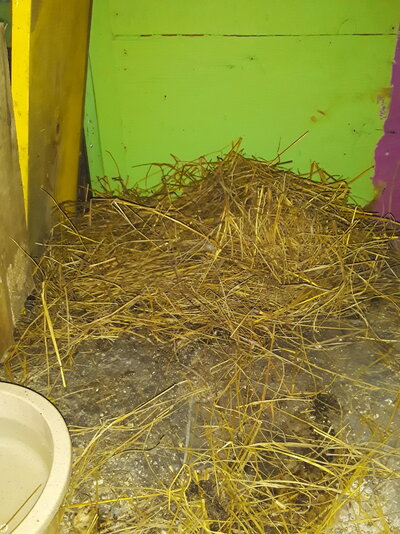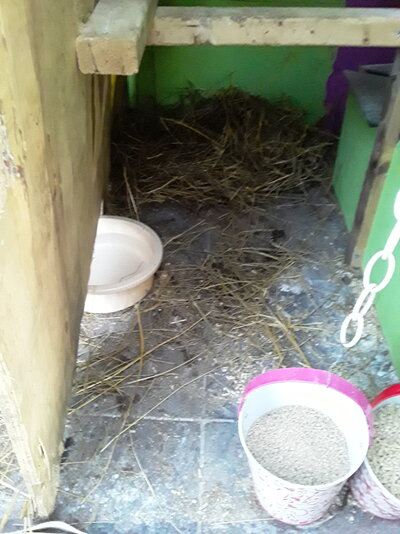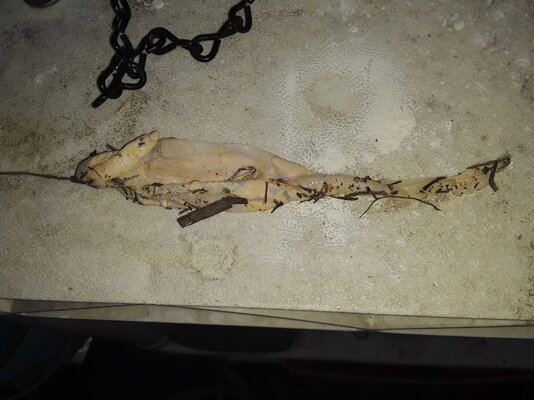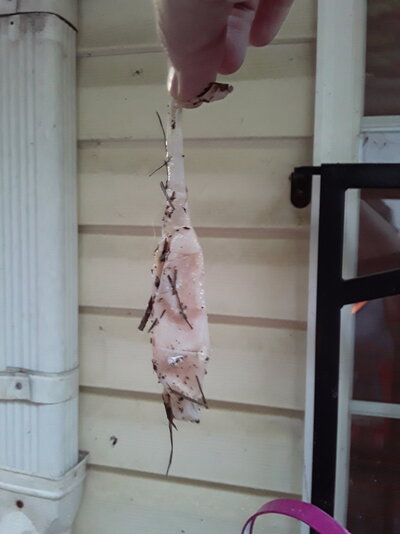New Chick In The Backyard
Songster
- Jan 1, 2021
- 113
- 97
- 106
I am new to chickens. I have one hen that is laying and the rest are young pullets that are very close to the general age of laying. I found a big piece of what looks like skin. I had no idea what it was so I smelled it and it smelled like raw chicken so I know it came from one of my chickies. What in the WORLD is this? I hope they are ok. Please help ASAP.
On a probable unrelated note my ISA Brown hen that is laying is so skinny and sometimes she lays eggs everyday and when it get extremely hot outside she stopped laying eggs for 8 days, went back to laying about an egg a day. Recently layed 2 eggs in one day and none the next. Is this related? I have enclosed a photo of something weird she did in the coop. She has nest boxes that she lays in, one in particular that she favors but sometime between last night and this afternoon I noticed that all the hay has been pushed to the back of the coop like shes trying to make a nest?? Any info would be appreciated.
On a probable unrelated note my ISA Brown hen that is laying is so skinny and sometimes she lays eggs everyday and when it get extremely hot outside she stopped laying eggs for 8 days, went back to laying about an egg a day. Recently layed 2 eggs in one day and none the next. Is this related? I have enclosed a photo of something weird she did in the coop. She has nest boxes that she lays in, one in particular that she favors but sometime between last night and this afternoon I noticed that all the hay has been pushed to the back of the coop like shes trying to make a nest?? Any info would be appreciated.












